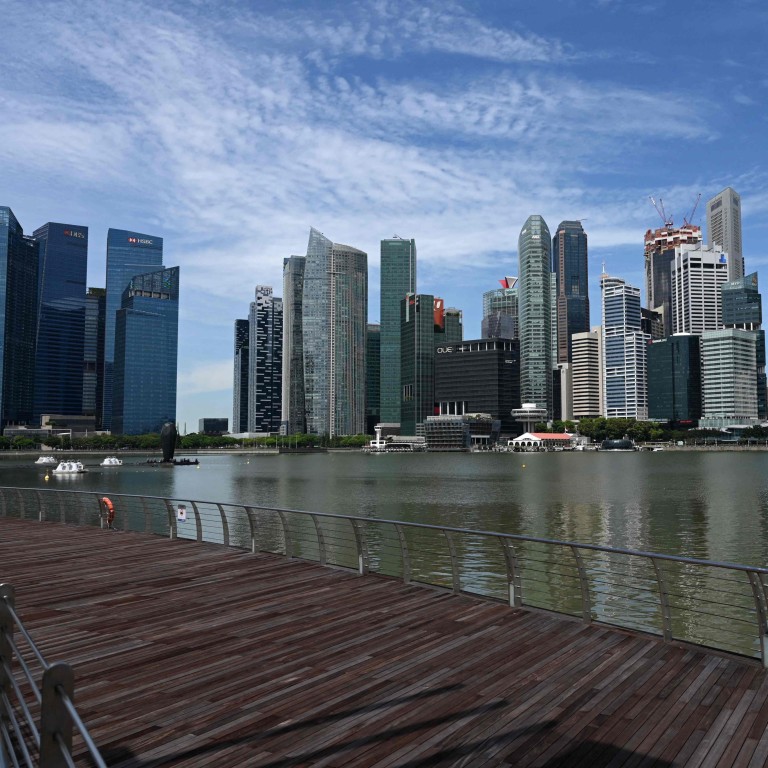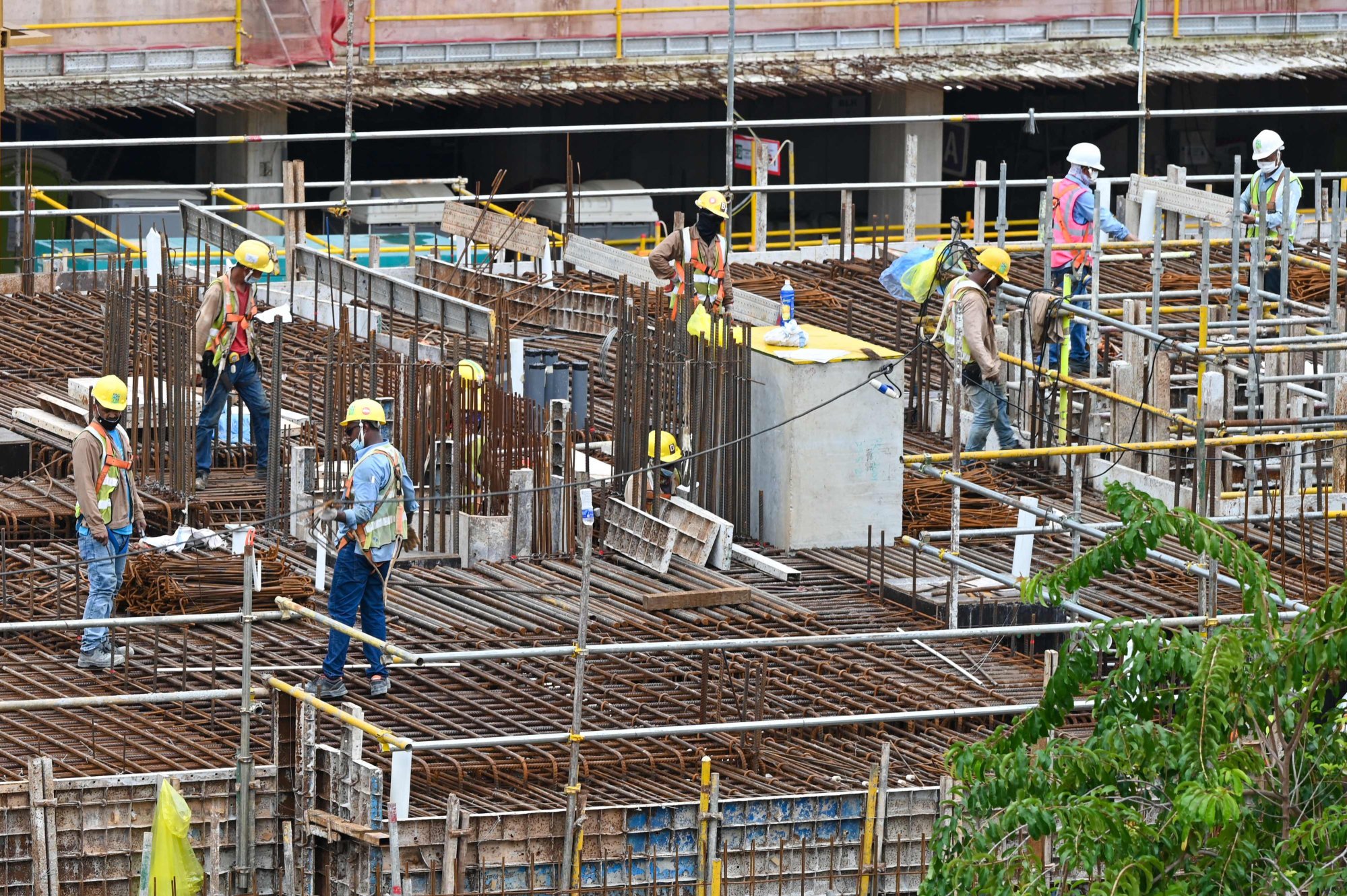
Singapore to fill foreign worker shortage in a ‘few months’, government promises
- Priority will be given to workers in the construction, marine and process sectors, Finance Minister Lawrence Wong said on Wednesday in parliament
- Singapore’s reliance on overseas workers is a recurring issue; due to the perception of hiring practices as well as low wages and rising living costs
Singapore aims to fill a shortage of overseas workers within the next few months as it progressively eases border restrictions, according to Finance Minister Lawrence Wong.
Priority will be given to workers in the construction, marine and process sectors, Wong said Wednesday in parliament, as addressed issues raised from this February’s budget presentation.
The availability of manpower is “a key concern for many businesses,” Wong said. “We should be able to clear the shortages within the next few months.”

As the city-state eases Covid-19 restrictions and activity picks up, businesses have warned of labour shortages, which is feeding into rising consumer costs.
Singapore’s central bank last week warned that “the domestic labour market should continue to tighten and lead to strengthened wage pressures over the course of the year” as it reported its core inflation measurement hit the highest since September 2012.
Singapore’s reliance on overseas workers across sectors, from labourers to executives, has been a recurring political and economic pressure point. It was a hot-button topic in the 2020 elections due to the perception of hiring practices that were unfair to locals and low wages for blue-collar workers facing rising living costs.
As Hong Kong cases surge, a look at Asia’s lockdowns from Singapore to India
Meanwhile, public discomfort over job competition from foreigners during the worst economic hit of the pandemic put the government on the defensive to explain the need for open borders.
“We must never let anti-foreigner sentiments take root here or give the impression that we are becoming more inward looking,” Wong also said Wednesday, cautioning that some lawmakers “have been shrill on this subject.”
Singapore has tightened requirements for foreign workers in recent years, most recently raising minimum salaries again, to “ensure that the workers coming in are of the right calibre” to help grow the economy, Wong said. He warned that Singapore is appearing in media reports to become less welcoming to foreigners.
“If global investors conclude that this is so, Singapore will become less attractive to them,” he said, “and it will be ordinary Singaporeans who suffer the most.”


